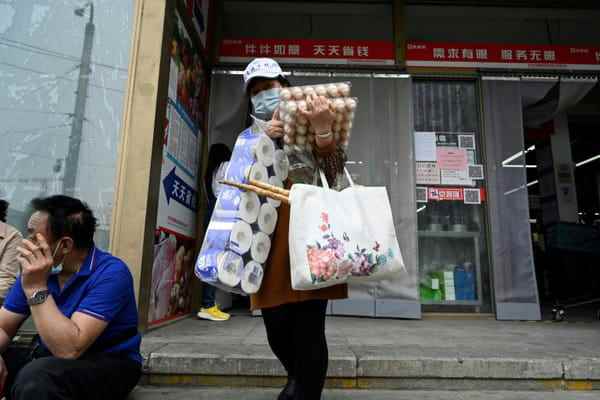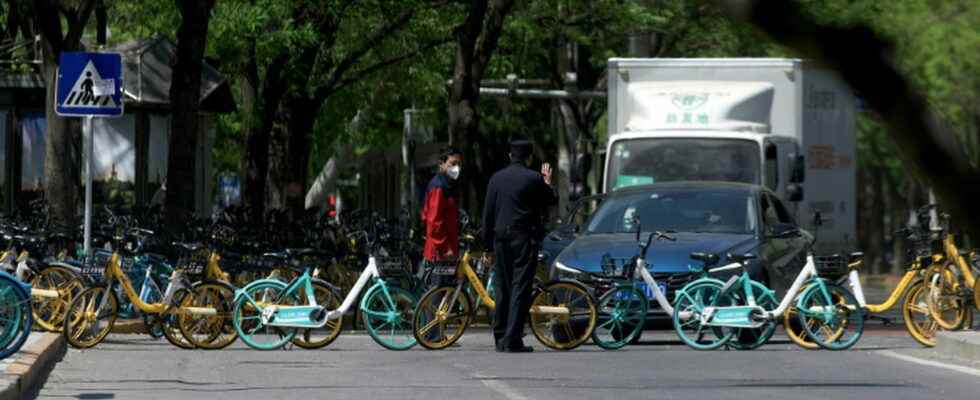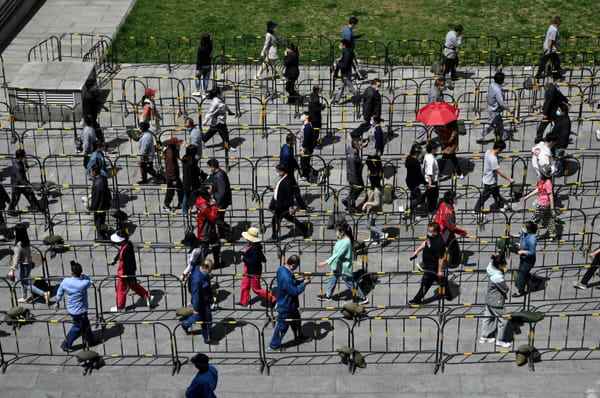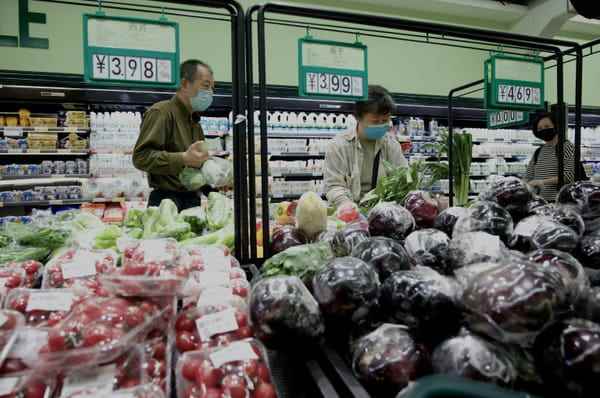Screening extended to almost all of the 22 million inhabitants, cancellation of wedding ceremonies and shows, closing of gymnasiums: the city of Beijing lives on Tuesday in fear of general confinement like in Shanghai.
China has been facing an epidemic outbreak since March that affects many provinces to varying degrees. It responds to this with a zero Covid strategy, that is to say mainly by quarantine and massive screening.
The hardest hit city is Shanghai, which again announced 52 new deaths on Tuesday and nearly 17,000 positive cases in 24 hours. The 25 million inhabitants suffer a hard confinement since early April.
Some have difficulty accessing food there and many fear, if they test positive, to be sent to collective quarantine centers, with very variable comfort.
The situation is infinitely less serious in Beijing. But more than a hundred positive cases have been reported since last week, including 33 new ones announced on Tuesday – an increase from previous days.
In order to identify and isolate infected people as quickly as possible, the Beijing authorities are carrying out a screening campaign which extended to 12 of the city’s 16 districts on Tuesday.
As of Monday, residents and employees of the Chaoyang district, the city’s most populous and home to many multinationals, offices, embassies and shopping malls, had already been tested.
Eleven new districts began screening their residents on Tuesday. In total, approximately 20 million inhabitants are affected by this campaign.
At the same time, the city begins to impose restrictions.
– Temple closed –
Several gymnasiums, where Beijingers like to practice basketball or badminton, announced on Tuesday that they would be closed until further notice “to comply with requests from health authorities”.
The Lama Temple, a Tibetan Buddhist site that attracts many visitors, will close from Wednesday.
Hotels can no longer hold meetings on their premises, the town hall announced on Tuesday. Exhibitions, wedding ceremonies, shows and sports competitions are also suspended.
Life remains largely normal in Beijing, however. Shops, restaurants, cinemas and offices are open.
Even if the authorities have not mentioned the possibility of confinement, the example of Shanghai frightens many Beijingers who prefer to stockpile food to deal with this eventuality.

A woman leaves a supermarket with her arms full of groceries in Beijing on April 25, 2022.
© AFP – Jade GAO
They have been going en masse in recent days to supermarkets and online sales platforms to buy meat, fruit, vegetables, water or snacks.
“What is happening in Shanghai, nobody expected it,” said Ms. Zhao, a Beijinger doing her shopping.
“I think that in Beijing, it will not be as serious. But we still bought rice, noodles and oil, just to last at least one or two weeks”, explains this human resources manager of 35 years.
No food shortage has been observed so far.
– “Fear” –
City hall spokesman Xu Hejian said on Monday evening that the spread of the virus was “under control”.
About 30 residential buildings, a tiny part of the population, are already in a form of confinement, particularly in the Chaoyang district.
One of the residents, who wishes to remain anonymous for fear of reprisals, told AFP that he had seen the sudden erection of fences in his neighborhood.
“I’m just afraid that I won’t be able to get medicine or other products delivered to me if I need it,” he explains. “We don’t know how long it will last.”
Everyone in his building must stay home for at least 14 days after a positive case is found in the building.
The authorities have urged companies to resort to teleworking. A few days before the May 1 holiday, they also called on Beijingers not to leave the city unless absolutely necessary.
Beijing’s measures, however, are moderate compared to other places facing similar outbreaks.
But the tightening of Covid-related restrictions in China is weighing on growth.
On Tuesday, the central bank promised to “increase (its) support” for the economy, in particular for small businesses, which are very fragile.
All rights of reproduction and representation reserved. © (2022) Agence France-Presse


